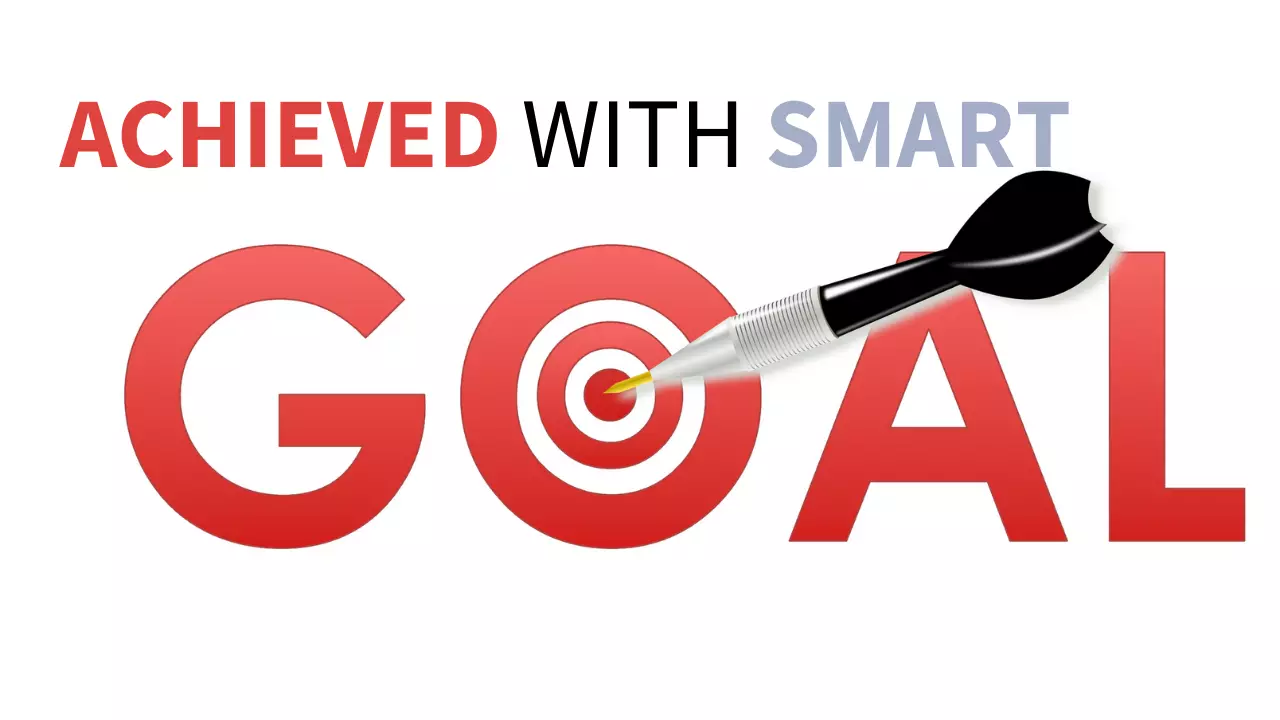25 Time Management Tips for Achieving Your Goals
25 Time Management Tips for Achieving Your Goals
Powerful and effective time management is one of the most useful talents you may have in life. There’s no way you’ll be able to achieve your job and personal goals if you don’t manage your time efficiently. Yes, you might be able to make some progress. However, if you don’t take your time seriously, managing your time will be a difficult task. People who waste and squander the precious little time they do have are all too aware of how tough it is to achieve even moderately challenging goals.
Time is, without a doubt, the greatest equaliser in life. You have the same amount of time as the next person, regardless of your age, income, gender, colour, or religion. Your time is the same whether you are filthy rich or filthy poor. It makes no difference how much time you have. It all comes down to how well you manage your time.
So, if you’re serious about accomplishing your goals, you’ll need to get serious about avoiding distractions and becoming too engrossed in the negative habits you know you need to break. Time-wasters must be eliminated, and true grit-and-bear-it hard tasks must take their place.
What’s the secret? Find and use an effective time management system. There are numerous. Which one you choose is entirely up to you. However, if you don’t want to be one of the 92 percent of individuals who fail to reach their long-term goals, you must be careful how you spend the limited time you have in this world.
What are the best tips for managing your time?
One of the most difficult challenges for most businesses is not only getting enough work done in such a demanding industry, but also maintaining some form of balance without feeling overworked. This isn’t only about achieving and pursuing objectives throughout all hours of the day and night. It’s also about living standards.
It’s crucial to maintain a sense of equilibrium. You’ll be stressed out if you don’t have a sense of balance in your life. Even if you’re able to efficiently juggle your tasks, you’ll ultimately hit your breaking point if you don’t maintain correct balance. As a result, it’s critical to follow a strategy that not only helps you get things done, but also prioritises personal and family time.
Don’t forget to take a walk in the park, or simply relax and listen to your favourite music with headphones on, or paint a picture, or go on a date night, for example. That is more significant than you may realise. And by doing so, you attain some sort of equilibrium. Life is a finite resource. So, while you’re pursuing your larger ambitions, don’t forget about those details. With that in mind, here are 25 time management techniques to help you get the job done.
Set your goals the right way
There’s a correct method to set goals and a wrong way to set goals. If you don’t set your goals correctly, you won’t have the right targets, which will cause you to lose track. However, when they’re put up correctly, the sky’s the limit. To help you see things through, use the SMART goal-setting process. And when you do create those goals, make sure you have strong deep-seated motivations for achieving them.
Find a good time management system
Finding the correct system to manage your time is one of the time management techniques. Probably the most successful time-management system is the quadrant system. It divides your tasks into four quadrants based on their relevance and urgency. Things are either significant or urgent, or neither. Neither (quadrant 4) are tasks you should avoid; instead, you should concentrate on the not-so-urgent-but-important quadrant (2).
Audit your time for seven days straight
Spend the next seven days evaluating how you spend the time you do have now. What exactly are you up to? It’s a good idea to write it down in a journal or on your phone. Divide the time into 30 minute or hour increments. What did you accomplish today? Was it a waste of time? Is it money well spent? If you’re using the quadrant system, make a circle or a log in the quadrant where the action occurred. Add up all the numbers at the conclusion of the seven days. What was the place where you spent the most time? Which quadrants are you talking about? You might be surprised by the outcomes.
Spend your mornings on MITs
As Mark Twain famously put it, “It’s preferable to eat a frog first thing in the morning if it’s your job. It’s also advisable to eat the largest frog first if you have to consume two frogs.” What exactly is his point? Take care of your most important duties first thing in the morning. These are your day’s most important tasks (MITs). Getting those done will provide you with the most momentum to assist you get through the rest of the day.
Follow the 80-20 rule
The Pareto Principle, often known as the 80-20 Rule, is another wonderful time management technique. According to this rule, 20 percent of the results come from 80 percent of the labour. In sales, it also signifies that 20% of the clients account for 80% of the sales. What’s the secret? Identify the 20% of efforts that provide 80% of the results and scale them up. This can be accomplished by rigorous tracking and analysis.
Instil keystone habits into your life
In his book The Power of Habit, Charles Duhig eloquently defined the keystone habit. The keystone is the stone that holds all other stones in place in a building. Similarly, keystone habits not only encourage the development of new good habits, but also aid to remove harmful ones. Focus on keystone habits, and you’ll improve your overall time management by making habit formation much easier.
Schedule email response times
During the day, turn off your email. It’s easy to become distracted when your email inbox is overflowing. Make time to read and respond to emails on a regular basis. Someone will call or text you if there is an emergency. When you have your email open, though, those interruptions disrupt your mental flow, making it more difficult to get back on track.
Eliminate bad habits
Our negative habits are one of the major time wasters we have. Whether it’s binge-watching Netflix, spending too much time on social media, playing video games, or going out to drink with friends frequently, these unhealthy habits eat up the very little time we do have. If you’re serious about accomplishing large life goals, make the most of your time by eliminating undesirable habits.
Take frequent breaks when working
According to one study, you should work for 52 minutes and then take a 17-minute rest. It’s possible that you won’t get the opportunity to do so. You should, however, take frequent breaks. This is especially important if you’re a self-employed entrepreneur. It’s really simple to be running on fumes without even realising it. By taking frequent breaks, you can keep your mental, emotional, and physical states at their best.
Meditate or exercise every morning
You might not believe that meditating and exercising every morning can help you better manage your time, but it will. Cut the toxins out of your life and become serious about it, and you’ll notice a significant difference in your energy, stamina, and mental focus.
Make to-do lists in the evening for the next day
Make a to-do list for the next day every evening before going to bed. Examine your objectives and see what you can do to get closer to them. This isn’t something that happens overnight. It will take some time. Making to-do lists, on the other hand, is a good way to create daily goals. Daily goals are easier to achieve while also assisting us in achieving our longer-term and larger objectives. Creating to-do lists, on the other hand, does this.
Find inspiration when you’re feeling lackluster
When you’re feeling down, turn to YouTube, TED Talks, or any other inspirational source you can find. When you lose your drive, it’s difficult to keep on track with your time. Find ways to rekindle the fire by focusing on inspiring information and seeking out individuals who have accomplished great things.
Get a mentor who can guide you
It’s critical to find a mentor. When you don’t have someone to guide you, it’s easy to become distracted and discouraged. It’s simpler to keep on track with your time when you can personally rely on someone who’s been through the ringer and can assist you achieve your goals. Find a good mentor who can assist you on your journey.
Turn off social media app alerts
Constant notifications from social media apps aren’t helping you manage your time. It is unquestionably causing you pain. Switch them off. You don’t need constant notifications or to know what’s going on with your friends. It makes no difference. The most important thing is to feel at ease and be able to concentrate on the task at hand.
Declutter and organise
According to studies, clutter in our environment causes us to lose attention. We lose time when we lose focus. Declutter and arrange if you wish to avoid this. Don’t try to do everything at once. Begin small. Today I only have one drawer. Tomorrow, a shelf. The next day, perhaps a closet. Only one a day. You gain confidence and finally transform into an organising warrior.
Learn to Say No
While being a team player is crucial, it’s also important to know when and how to be forceful and tell people you can’t manage their request right now if it interferes with your goals. If you agree to take on the job, set a timeline that allows them to meet their objectives while not jeopardising your own.
Reduce the Number of Meetings
Meetings that are poorly run waste time when multiplied by the number of individuals in attendance. Make sure you have a meeting agenda and aren’t just holding one for the sake of holding one.
Eliminate Electronic Time Wasters
Everyone has distractions that interrupt their work and divert their attention away from it. Is yours a Facebook account? Twitter? Checking your email? Messages with friends and family on a regular basis? Stop checking them so frequently and start batching similar tasks. Set a timer, then check and respond to all of them at the same time. Take a 30-minute break and then get back to work.
Take Care of Your Health
A good night’s sleep, a nutritious diet, and regular exercise will provide you with the energy, focus, and stamina you need to get the most out of your day. Work may appear to be more important, and you can always make up for lost sleep, food, or exercise later. However, if you lose your health, you won’t be able to work or do much else, so don’t put off taking care of yourself.
Find out where you waste the most time
Every one of us has a “kryptonite,” a pastime in which we spend much too much time for emotional reasons. Meetings, emails, logistics, social media, and disagreements are just a few examples. Find your time management kryptonite and work to reduce the amount of time you squander.
Have a tidy and clean working environment.
A tidy workstation can boost your productivity significantly. Make sure your work environment reflects your ability to be well-organised.
Establish healthy routines
A routine is something you perform routinely and without thinking about it. If you build a practice of starting your day with the most important task, for example, it will become second nature to you, and your productivity will soar.
Drink at least 2 – 3 litres of water per day
It will keep you energized, focused, and fresh. It’s already too late if your mouth is dry. The simplest approach to implement this tip is to keep a bottle of water on you at all times and drink it throughout the day.
Track how you spend time
An excellent time tracker gently encourages you to be more productive, helps you to analyse how you spend your time, and allows you to concentrate better on the more important activities.
You can only manage what you measure, as the phrase goes. By using time monitoring, you can see how you spend your time, how much time you spend on different projects, and how much money you actually make.
You can better optimise your time if you have precise statistics. If you use a time tracker, you’ll be more likely to employ other time management practises on a regular basis.
You should be a minimalist if you want to be as organised as possible. In life, try to have as little possessions as possible. Material items, like people, thoughts, words, and tasks, take up room, energy, and time in your life.
Everything you haven’t used in the last three months should be thrown away. Keep your belongings to a minimum. All you need is your intellect, happiness, a bank account, and the contents of your digital cloud. Remove all the garbage from your life.
You’ll also want to put as much as possible “in the cloud,” including your music, videos, documents, applications, notes, and records.
If you save everything to the cloud, you won’t lose anything if your device is lost or breaks down. All you have to do is buy a new device, enter your passwords, and everything will sync.
Having your life structured on the cloud allows you to be really productive. You can work from any location; you are not bound by your personal belongings, and so forth. All you have to do now is ensure that your life on the cloud is as well arranged as possible.
You don’t want to waste time looking for documents, folders, notes, or other information. Living in the cloud might boost your personal productivity if you have a decent framework in place.
Finally, this 25 Time Management Tips for Achieving Your Goals will be effective if you train yourself based on this.





